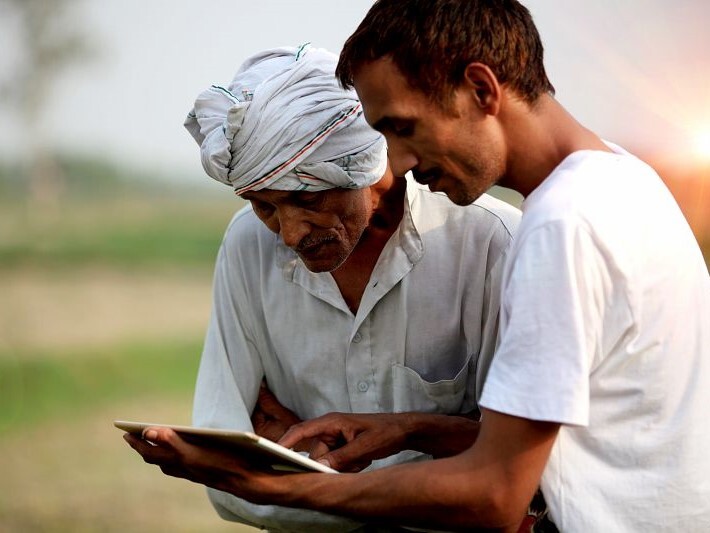Diversity and inclusion of our talents: an asset for the company
Diversity, equal opportunity and equal treatment are central to Arkema’s policy.
As part of our policy of non-discrimination, workplace equality and diversity, we commit to applying a zero tolerance policy towards all forms of discrimination, and to hiring people solely on the basis of its needs and each applicant’s personal qualities.
Workplace equality is one of the major priorities of the Group’s human resources policy, along with the prevention of discrimination. We ensure:
- gender equality in the workplace,
- facilitate the integration of employees with a disability, and
- prevent discrimination on the basis of age, nationality or mandate as employee representative.
Why promoting diversity and inclusion?
Better integrating and valuing differences means strengthening well-being at work, fostering an environment of innovation and creativity, helping to improve business decisions, and making Arkema an ever more efficient Group.
Diversity and inclusion represent real wealth for the Group and are a key pillar of its success. They are inseparable from our spirit of openness. This commitment supports our One Arkema joint project. Every one of us has to set an example."
Diversity is everything that makes each of us different
It encompasses a set of visible and invisible human differences.
This concerns the personal dimensions of diversity related to gender, age, ethnic origin, nationality, culture, sexual orientation, religion, health, and physical and mental abilities, as well as additional dimensions such as, for example, parental and family situation, academic record, professional experience, social status and background, geographic location, organizational affiliation, ideas, etc.
Inclusion is one of our five fundamental values
It relates to the process of engaging and mobilizing a diverse population, ensuring fair and equitable treatment, access and opportunities.
Inclusion encourages employees to be fully engaged in their workplace and respectfully express their diverse opinions, thus contributing to Arkema’s sustainable success. Inclusion also reflects an open-minded attitude to difference.
Diversity and Inclusion make Arkema a better company
Focus:
Employees commitment
In 2022, a survey of all our employees around the world shows their strong engagement in the Arkema Group.
Our diversity and inclusion action plans
We are committed to developing programs focused on achieving greater diversity as well as inclusion. Our roadmap focuses on 4 pillars of progress:
1. Measurable targets to achieve diversity in the Group
One of the top priority we have set ourselves is that of gender in order to raise professional equality, as we aim to become a benchmark employer for women. Accordingly, we are deploying a strategy that can guarantee them fair and respectful treatment, facilitate their integration and development in the Company, and increase their representation. By 2030, Arkema is looking to employ 30% of women in senior management and executive positions.
Another priority concerns nationalities to bring us closer to our objectives of greater workforce diversity. We aim to achieve 50% of non-French people in senior management and executive positions by 2030.
We will also strive to define key performance indicators on inclusion in the future.
2. Solid governance at Group level and within regional entities
Two Global Diversity & Inclusion Committees:
- one committee comprising BU Managing Directors and Functional Directors;
- the other comprising employees at less senior levels.
These bodies ensure accountability and ownership at every level, draw up the diversity and inclusion corporate strategy, set out global initiatives, ensure internal and external communication on D&I, and assess progress on the organization's diversity targets.
Regional committees, starting, in 2022, with France, the United States and China. Each region is responsible for developing its own action plan in terms of D&I strategy, in a manner consistent with the global D&I strategy, while taking into account geographic differences and socio-cultural contexts (reflecting, for example, different regulatory contexts).
A network of Diversity & Inclusion champions to relay the voice of our employees on a broader scale. These champions are responsible for promoting, facilitating and supporting the implementation of diversity initiatives at regional level and/or plant/project level, adapted to local cultural and social perspectives. They will be de facto members of the regional D&I committees.
3. HR processes that foster diversity and inclusion
Arkema is developing, for example, e-learning courses to raise employee awareness of inclusion, biases and stereotypes, and devising means to measure gender pay disparity.
4. Promoting an inclusive culture by way of communication campaigns
Through internal and external campaigns, with testimonials and inspiring stories, we will demonstrate our commitment and attract a wider talent pool. We will also keep all our stakeholders informed of our objectives and concrete results within a cycle of continuous improvement.
Encouraging talented women
Key objectives by 2030:
The Group has set itself the global goal of reaching 35% of women among senior management and executives by 2030.
Today, 33% of the Arkema's mid-level managers are women.
To tackle the risk of the "glass ceiling" phenomenon, and support the advancement of women employees, Arkema recently created a mentoring program. Among the Group's leaders, volunteer "mentors" - men or women - are trained to assist their "mentees" in their career development.
Arkema in the Forbes ‘World’s Top Companies for Women 2024’
Arkema achieved the new ranking in 2024 listed in 316th place out of 400 companies, 26th out of 32 in our sector, 37th out of 42 French companies.
This new ranking we are part of now is a significant milestone and a deep recognition of our commitments and concrete achievements in the area of Women at the Workplace, through for instance well-being at work, gender pay equity, non-discrimination and non-harassment policies including our global alerting tool, and career advancement for women.
In less than 10 years, our female representation in the senior management & executive positions has risen from 17% to 29%.
[They testify]
"Arkema is doing a great job of promoting women to senior positions"
"I started my career in 1995 as a Production Operator, on a rotating 12-hour shift system. After 25 years at Arkema, I was promoted to Facility Manager two years ago.
My progression has been gradual. With experience, I became more aware of my abilities and started to perform management duties, before being appointed as Security Manager.
I owe my position to a HR process. One day a Facility Manager contacted me and said: ‘How would you feel about becoming Facility Manager?’ Chemical companies usually promote mainly chemical engineers, but Arkema has a different policy; the Group considers skills above all and endeavors to advance all kinds of talent.
From Production Operator, I became Facility Manager! Arkema is doing a great job of promoting women to senior positions and, more broadly, promoting diversity."
In Brazil, Arkema Places its Diversity Mentoring Program Under the Auspices of the UN
With its “MARIE” program, Arkema Brazil is implementing various initiatives for gender diversity: mentoring for women, the creation of their own dedicated network, and internal awareness-raising initiatives, among others. Arkema Brazil has decided to launch this program in line with the Group’s Diversity policy, and within the framework of the Women’s Empowerment Principles (WEP) promoted by UN Women, the United Nations branch dedicated to gender equality and the empowerment of women.
Signing these principles allows for access to resources that optimize the chances of the “MARIE” program succeeding: a network of signatory companies, studies, benchmarks, the sharing of good practices, etc.
This commitment complements our existing commitments under our corporate social responsibility policy. Gender equality is one of the United Nations Sustainable Development Goals that Arkema is particularly focused on.
Nurturing international diversity
Key objectives by 2035:
50 % of senior management and executive positions to be held by non-French nationals
Arkema believes in international diversity
The diversity of its talents is an invaluable resource for Arkema, both in human terms and in performance terms.
International mentorship helps boost the visibility of high potentials outside France and include more global profiles in senior management, by having senior executives from the Group coach them in house in order to groom leaders for the future.
3 questions to Mengdi Yuan, Head of Talent Acquisition and Diversity Inclusion at Arkema
[They testify]
"Arkema pursues a real policy of bringing talent to the fore”
Celine remembers the day that a HR manager in Paris asked her what her dream would be. “To become a facility manager”, she replied. “If I hadn’t been asked the question, the idea of taking on such responsibility would never have occurred to me. Arkema pursues a real policy of bringing talent to the fore.”
First recruited in the late 1990s as a chemist to set up the Changshu laboratory, she has held various other positions since, including HSEQ Manager, Production Manager, SAP Project Manager, Facility Manager. Now the HSEQ Director for Asia, she would like to inspire other young women to rise through the ranks.
A responsible policy for the employment of workers with disabilities
Today, “any person whose possibilities of obtaining or keeping a job are effectively reduced following the deterioration of one or more physical, sensory, mental, or psychological functions” is considered a worker with a disability.
Arkema's inclusive culture supports the well-being of employees, including those with invisible disabilities, by fostering mutual respect and confidence. Since 2008, and encouraged by several countries with incentivizing regulations, Arkema has actively integrated workers with disabilities and is engaged in hiring more employees with disabilities.
The company also improves the work environment for workers with disabilities through practical or technical adaptations, training, and partnerships with specialized agencies.
Focus
Arkema disability policy in France
At the end of 2023, the company signed a 6th agreement, with a 3-year term. This provides for the hiring of 63 employees with disabilities, as well as:
- Continued training of our disability coordinators and referents at Arkema sites, through an increased training offer, with in particular 100% of new coordinators and referents trained and 100% of new managers trained.
- Pursue partnerships with players in the field of employment and integration, such as AKTISEA, a recruitment agency where at least 50% of employees are disabled, in order to achieve or maintain a 6% employment rate for disabled employees at both company and site level.
- A more important component for employees who are caregivers: five days of authorized paid absence when a child becomes disabled, and two days of authorized paid absence to support a disabled family member in his or her work.
- Increase measures to improve the day-to-day lives of disabled employees (technical and material adaptations, transport assistance, adaptation of working conditions, specific training, etc.).
- Increase purchases from the disabled sector: target of 1.5 million in sales by the end of the agreement.
During the term of the 5th agreement (for the 2021-2022 period):
- 47 new recruits were effected (all types of contracts).
- Sales of 730,000 euros to the protected workers sector
- The employment rate was 5.64% in 2021 and 6.31% in 2022
[They testify]
"This support has been crucial in enabling me to improve my well‑being at work"
“I joined Arkema in 2017, before being diagnosed with ankylosing spondylitis, a degenerative autoimmune disease with fibromyalgia.
It took a while before I was ready to start the RQTH (Recognition of Disabled Worker Status) process with the public bodies. I needed some time to accept my situation and recognize that I needed help. Well‑informed and supported by Arkema HR, I finally completed my RQTH application in 2019.
This support has been crucial in enabling me to improve my well‑being at work. I’ve benefited from new equipment such as an electric desk which lets me work standing up to relieve my pain. I’ve also been given more flexibility in my working hours and have facilities available to me for business trips."
An award-winning Diversity and Inclusion policy
Arkema has been recognized for its commitments in several rankings:
- Financial Times European Diversity Leaders
- Capital magazine's Diversity Champion Companies
These rankings assess companies on various diversity criteria, including ethnicity, age, sexual orientation, gender and disability.



